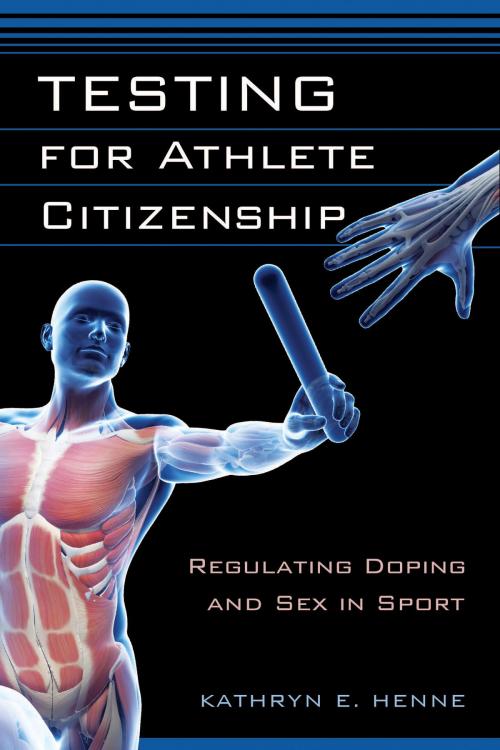Testing for Athlete Citizenship
Regulating Doping and Sex in Sport
Nonfiction, Reference & Language, Law, Sports, Reference| Author: | Kathryn E. Henne | ISBN: | 9780813575568 |
| Publisher: | Rutgers University Press | Publication: | April 17, 2015 |
| Imprint: | Rutgers University Press | Language: | English |
| Author: | Kathryn E. Henne |
| ISBN: | 9780813575568 |
| Publisher: | Rutgers University Press |
| Publication: | April 17, 2015 |
| Imprint: | Rutgers University Press |
| Language: | English |
Incidents of doping in sports are common in news headlines, despite regulatory efforts. How did doping become a crisis? What does a doping violation actually entail? Who gets punished for breaking the rules of fair play? In Testing for Athlete Citizenship, Kathryn E. Henne, a former competitive athlete and an expert in the law and science of anti-doping regulations, examines the development of rules aimed at controlling performance enhancement in international sports.
As international and celebrated figures, athletes are powerful symbols, yet few spectators realize that a global regulatory network is in place in an attempt to ensure ideals of fair play. The athletes caught and punished for doping are not always the ones using performance-enhancing drugs to cheat. In the case of female athletes, violations of fair play can stem from their inherent biological traits. Combining historical and ethnographic approaches, Testing for Athlete Citizenship offers a compelling account of the origins and expansion of anti-doping regulation and gender-verification rules.
Drawing on research conducted in Australasia, Europe, and North America, Henne provides a detailed account of how race, gender, class, and postcolonial formations of power shape these ideas and regulatory practices. Testing for Athlete Citizenship makes a convincing case to rethink the power of regulation in sports and how it separates athletes as a distinct class of citizens subject to a unique set of rules because of their physical attributes and abilities.
Incidents of doping in sports are common in news headlines, despite regulatory efforts. How did doping become a crisis? What does a doping violation actually entail? Who gets punished for breaking the rules of fair play? In Testing for Athlete Citizenship, Kathryn E. Henne, a former competitive athlete and an expert in the law and science of anti-doping regulations, examines the development of rules aimed at controlling performance enhancement in international sports.
As international and celebrated figures, athletes are powerful symbols, yet few spectators realize that a global regulatory network is in place in an attempt to ensure ideals of fair play. The athletes caught and punished for doping are not always the ones using performance-enhancing drugs to cheat. In the case of female athletes, violations of fair play can stem from their inherent biological traits. Combining historical and ethnographic approaches, Testing for Athlete Citizenship offers a compelling account of the origins and expansion of anti-doping regulation and gender-verification rules.
Drawing on research conducted in Australasia, Europe, and North America, Henne provides a detailed account of how race, gender, class, and postcolonial formations of power shape these ideas and regulatory practices. Testing for Athlete Citizenship makes a convincing case to rethink the power of regulation in sports and how it separates athletes as a distinct class of citizens subject to a unique set of rules because of their physical attributes and abilities.















